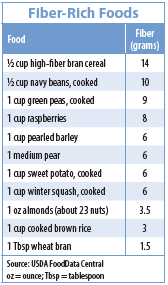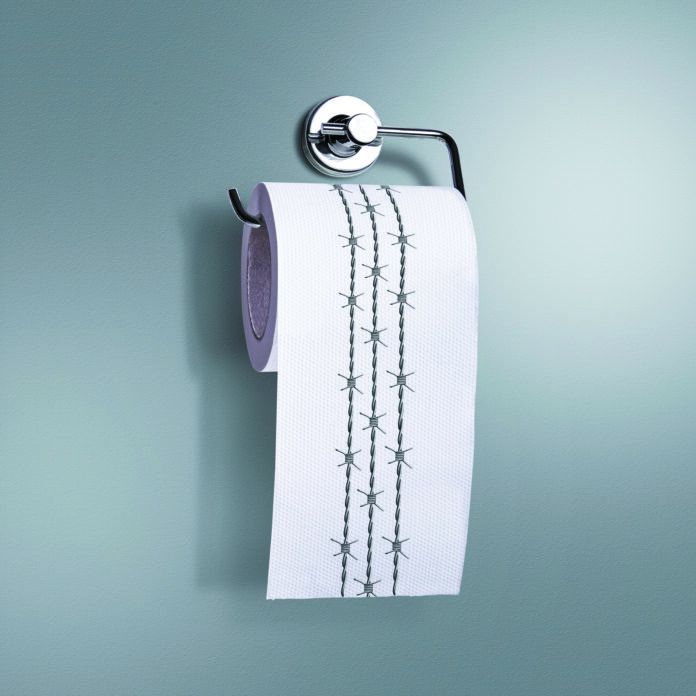Hemorrhoids affect about half of U.S. adults over age 50, yet few people want to talk about them. Itching, pain, and bleeding in the nether regions are difficult to sit with in silence, let alone share over a cup of coffee. Fortunately, we can help ease symptoms and even prevent hemorrhoids with dietary changes.
What are hemorrhoids? Hemorrhoids (also called piles) are an inflammation of the blood vessels that line the anus. They may be internal or external. Risk factors include chronic constipation, straining during bowel movements, older age, and increased pressure due to pregnancy or excess body fat. Despite unpleasant symptoms, they usually go away on their own and are rarely dangerous.
- Eat ADEQUATE fiber. Get the recommended 20 to 30 grams of daily fiber from foods like whole fruits and vegetables, beans, and products made with 100% whole grains. Fiber helps make stools easier to pass, lowering risk for developing hemorrhoids.
- Drink plenty of fluids. Fluid helps fiber soften stools. Dehydration contributes to constipation, which increases hemorrhoid risk. Increase intake of water and other fluids as you add fiber to your diet.
- Focus on insoluble fiber. All fiber is helpful to prevent constipation, but foods high in insoluble fiber, such as beans, whole grains, and nuts, are especially beneficial.
- Consider fiber supplements. Studies have shown that over-the-counter fiber supplements such as psyllium or methylcellulose improve overall hemorrhoid symptoms. Check with your health-care provider before starting any supplement.
- Don’t strain. To avoid putting pressure on the veins in the lower rectum, don’t strain or hold your breath when trying to pass a stool.
- Stay Active. Physical activity helps prevent constipation. Being more active may also help you lose excess body fat that might be contributing to your hemorrhoids.
- Avoid long periods of sitting. Sitting increases pressure on the veins in the anus. Don’t sit for long periods of time (especially not on the toilet).
Focus on dietary fiber. Consuming the recommended amount of dietary fiber is one of the main ways to prevent and treat hemorrhoids. Fiber is a carbohydrate that cannot be broken down by the digestive system. Coarse insoluble fiber stimulates the intestinal walls to secrete water and mucus, making stools easier to pass. Soluble fiber forms a gel with water that keeps stools soft. Both types of fiber add bulk to the stool, which triggers the intestines to keep things moving along. Most foods that contain dietary fiber will have both soluble and insoluble fiber. Good sources of soluble fiber include oats, peas, beans, and fruits like apples and citrus. Insoluble fiber sources include beans, whole grains, wheat bran, many vegetables, and nuts.
“Studies suggest that a diet habitually high in fiber—particularly insoluble fiber—helps prevent the formation of hemorrhoids and helps reduce bleeding and other symptoms if they do develop,” says Joel B. Mason, MD, a gastroenterologist and Friedman School professor. Mason recommends eating lots of fruits and vegetables to help reach the recommended 20 to 30 grams of fiber each day. Liquid helps the fiber work better, so increase your intake of water and other fluids as you increase your fiber intake.
Should you supplement? Increasing dietary fiber through foods is ideal, but a fiber supplement may be necessary in some cases. “The idea is to have several bowel movements per week without producing diarrhea,” Mason says. See page 2 of this newsletter for a discussion of psyllium, a common fiber supplement that has been shown to be effective for relieving constipation in most people. Talk to your health-care provider before starting a fiber supplement, as they may not be appropriate for people with certain medical conditions or may interfere with certain medications.
 Whether or not you add supplements to your diet, be sure to eat plenty of fruits, vegetables, beans, whole grains, and nuts/seeds and drink plenty of water and other unsweetened beverages to keep things moving and keep the pressure off those veins. When buying packaged foods, check the Nutrition Facts label for grams of fiber per serving.
Whether or not you add supplements to your diet, be sure to eat plenty of fruits, vegetables, beans, whole grains, and nuts/seeds and drink plenty of water and other unsweetened beverages to keep things moving and keep the pressure off those veins. When buying packaged foods, check the Nutrition Facts label for grams of fiber per serving.
























